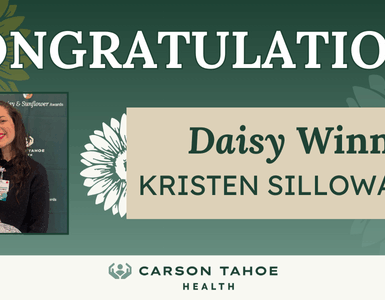June marked Alzheimer’s Awareness Month, but the recognition and education shouldn’t stop there. Did you know that complications from Alzheimer’s disease is the fifth leading cause of death in America for adults age 65 and older? Alzheimer Disease (AD), the most common form of dementia, is a progressive brain disease that causes a significant loss of cognitive functions such as memory, judgment, attention, and abstract thinking. This incurable disease begins slowly by attacking the nerve cells in the brain and eventually can become severe enough to interfere with daily activities.
Just like the rest of the organs in our body, over time our brain ages, and most of us will begin to notice certain things slipping our mind. We may become more forgetful and even a little absent-minded. This, however, can be normal. Severe memory loss and confusion about daily routines, though, may be a sign that your brain is failing.
Your brain begins to deteriorate over the three defined stages of Alzheimer’s. In the preclinical stage, the brain changes, and nerve cell disruptions begin to occur; but symptoms are not yet evident. The middle stage is marked by symptoms of memory loss, but they are not severe enough to interfere with a person’s everyday life. Lastly is full-blown Alzheimer Dementia; these symptoms are apparent and gradually become worse. They are substantial enough to where a person needs round-the-clock care.
The symptoms of Alzheimer disease may include:
- Forgetfulness
- Loss of concentration
- Language problems
- Confusion about time and place
- Impaired judgment
- Loss of insight
- Impaired movement and coordination
- Mood and behavior changes Apathy and depression
- Apathy and depression
While there is currently no cure, drug therapy can be used early on to treat symptoms. Although current drugs can’t stop the disease from progressing, they may help diminish symptoms. Research for a cure, as well as the exact causes of AD, is ongoing. What we do know about Alzheimer’s is that it may be caused by a combination of age, genetics, and environmental factors. Although there is no fool-proof way to prevent AD, there are several steps to lower the potential risk by staying mentally, physically, and socially active. You can do this by participating in engaging activities such as crossword puzzles, exercising regularly, or socializing (maintaining friendships). Additionally, it is important to maintain a brain-healthy diet such as the Mediterranean diet; chalked full of healthy fats, antioxidants, vitamins, and other nutrients.
While Alzheimer’s is a complex disease with a lot of unknowns, researchers are working tirelessly to find out more information related to the causes, effective treatments, and maybe someday prevention. If you or a loved one has symptoms of this disease, talk with your physician so they can help you take the next steps, including an action plan that works best for you. Carson Tahoe Therapy offers an Alzheimer’s support group that can help family members of Alzheimer patients cope with the disease.
To learn more about AD, get help and support, or find out about your local chapter please visit the Alzheimer’s Association website.







